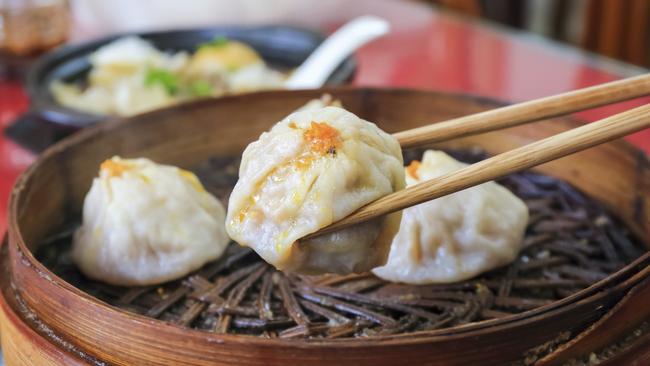Novels featuring particular cuisines are road map to fine dining
You’ve read the book; now try the moreish morsels written about in novels set in exotic locations.

“Where are we going to eat?” is the most common question asked whenever I take a trip with my family. Sure, we like going to museums, exploring ruins, strolling cobblestoned streets and visiting landmarks that have stood for centuries. Yet nothing seems as essential to our trip as our experience with the local cuisine.
When it comes to recommendations of what to eat and where to eat it, guidebooks, TripAdvisor, friends and acquaintances are all full of suggestions. But what about an unconventional source? What if we were to take recommendations from fiction?
Anne Korkeakivi’s novel An Unexpected Guest is set in Paris and revolves around both a high-profile dinner and the heroine, Clare, whose dangerous secret past threatens to unravel both the evening and her family’s future. It’s April and because white asparagus is in season, Clare includes it on the menu. She wraps it in paper-thin slices of air-dried, salted ham and serves it “with a buttery vinaigrette and clusters of round mustard seeds and rose peppercorns”.
“When in season, asparagus is easy enough to find on menus all over France — au naturel with sauces, in soup, in quiche. But at the risk of inciting rage in their servers, real gourmets may want to check whether the asparagus comes from France,” Korkeakivi says. The American has lived in France for 10 years.
If a reader really wants to be authentic, she adds, ask “from where in France: Landes produces fine asparagus; Alsace, and even more specifically the town of Hoerdt, is often said to produce the best asparagus of all”.
Though the action of Sarah McCoy’s novel The Baker’s Daughter takes place in two different times — the end of World War II and the beginning of the 21st century — there is a unifying thread: a bakery. As Elsie, the baker’s daughter in 1945 in Germany and a bakery owner now in Texas, and Reba, a journalist assigned to interview Elsie, come together in a story about survival and forgiveness, they do so in the presence of flour, sugar and wood-fired ovens. Lebkuchen, a signature dish of German Christmas, plays a role as love and memory win over shame.
“Lebkuchen would be the first thing I’d recommend trying in Germany,” McCoy says. “In fact, I’d encourage them to go on a hunt to find it — whatever the season! It’s akin to a gingerbread, full of molasses, honey and sweet spices. The most celebrated is Lebkuchenherz (gingerbread hearts). You can see these hanging with frosted greetings throughout Germany during Yuletide.”
The historical fiction of Alexandra Curry’s The Courtesan tells the story of Sai Jinhua, concubine to one of China’s first emissaries to the West. Curry uses dumplings — a dish both ubiquitous and highly symbolic in China — to heighten tension between the main heroine and the emissary’s First Wife.
Thought to bring prosperity, dumplings — “pink with shrimp, and plump, and fragrant; the skin gleams, fragile and diaphanous” — serve both as a warning and an opportunity and point to some surprising twists Sai Jinhua’s life is about to take.
“The best dumplings are in restaurants that fall squarely into the hole-in-the-wall category,” says Curry. She lived in Singapore and Taiwan as a child and has travelled extensively through China. “The dumplings can be round, crescent-shaped, steamed, fried or boiled. They can be served in soup or not, can contain anything from pork to red beans to sweetmeats to leek and cabbage, crab, pork or scallops.
“They bring good luck and the plumper the dumplings, the luckier they are. So don’t be afraid of those restaurants. If the crowds are there, the dumplings will be delicious.”
As for me, while I’ve done my share of travel through both France and Germany, I haven’t tried asparagus-laden dishes or the lebkuchen. Now I know that those two items will be on my must-eat list when I go there next. And as for China, as I plan my first trip there, I am already thinking of keeping my eyes open for those hole-in-the-wall restaurants and looking out for plumper dumplings.
Because one can never have too much luck — or too much good food — on the road.
Rebecca Strong is the pseudonym of an expatriate writer living in Madrid. Who is Mr Plutin? is her debut novel.
The Wall Street Journal


